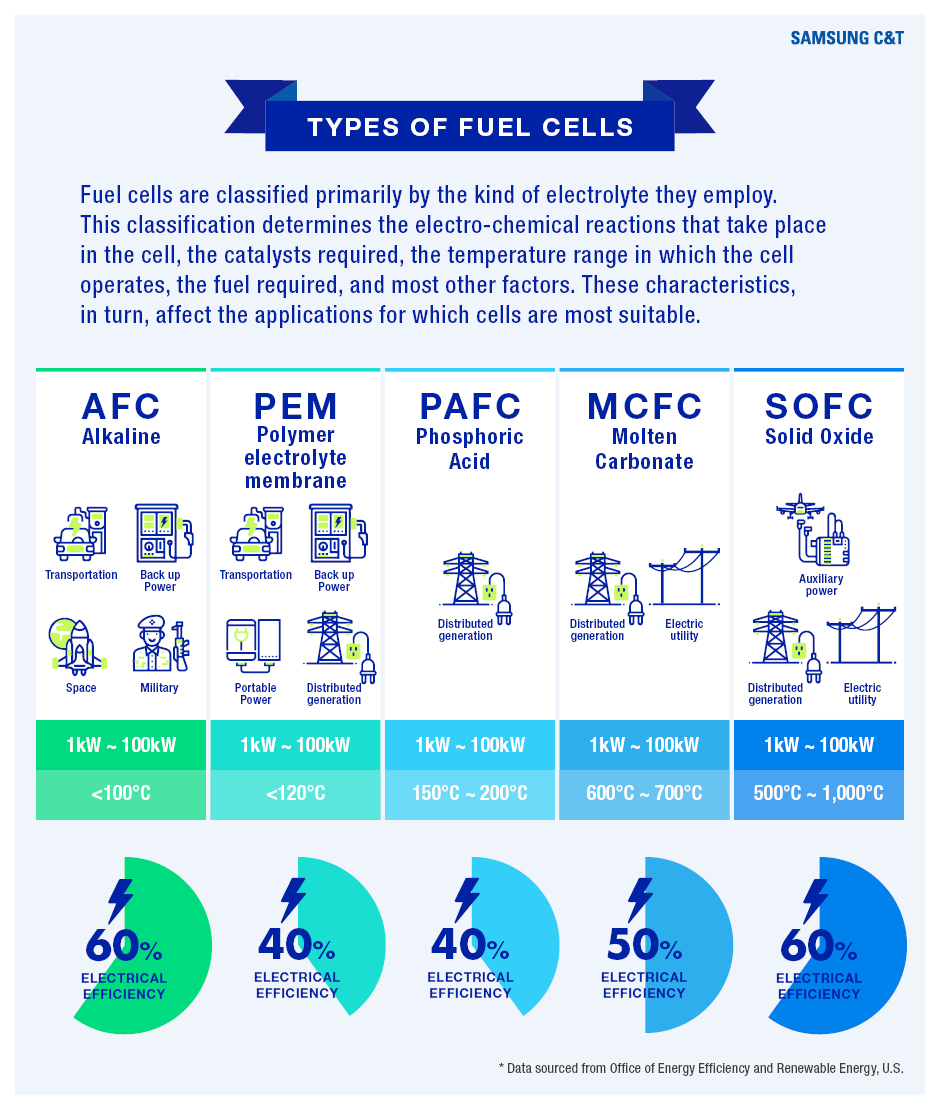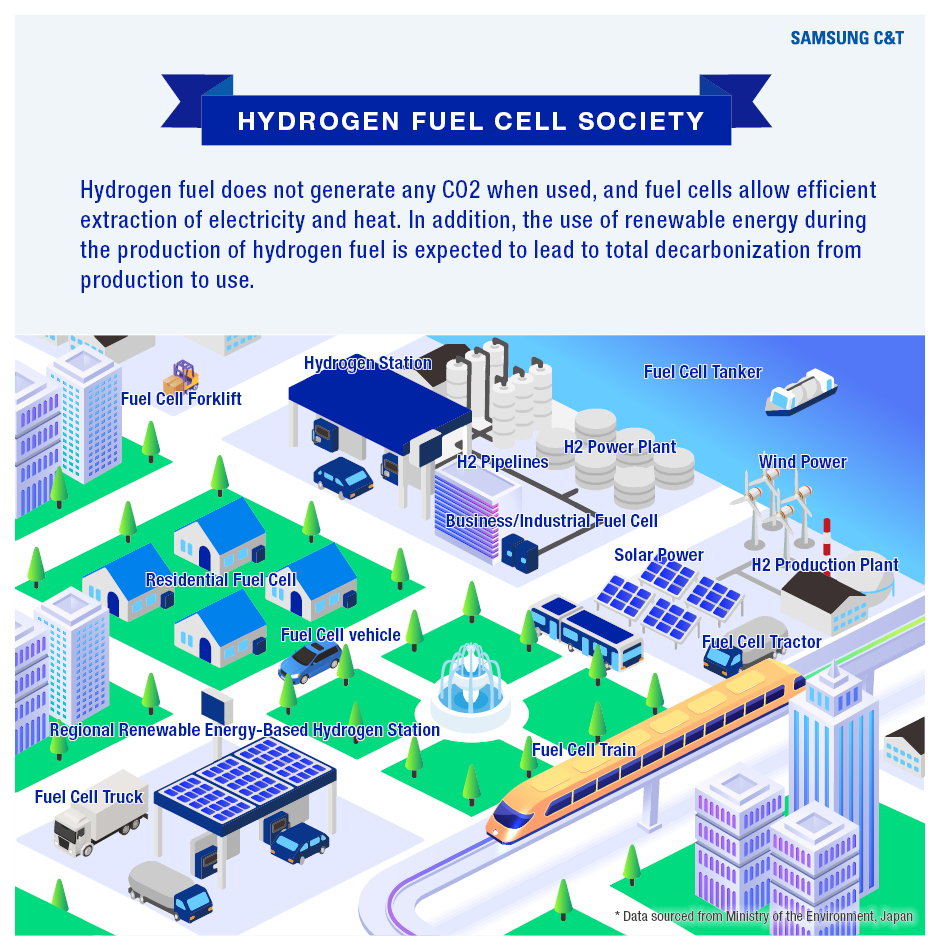
With the world seeking to embrace hydrogen as a clean energy solution, interest in hydrogen fuel – and therefore fuel cells in particular – is gathering pace.
Fuel cell technology plays a key role in the utilization stage of the hydrogen economy, which is divided into production, storage, transfer, and utilization stages. Fuel cells can be applied to various applications, from transportation to power generation.
In the past, we introduced the rise of fuel cells and how they work. Now that Samsung C&T Trading & Investment Group is actively engaging in the clean hydrogen business to help support applications such as hydrogen fuel, let’s check back in with fuel cells and their future.
Why fuel cells are so fascinating
In brief, a fuel cell is a device that converts chemical energy of a fuel such as hydrogen and methanol into electrical energy through an electrochemical reaction. There are various types of fuel cells depending on the electrolyte used in the fuel cell. And depending on the type, there are differences in characteristics such as operating temperature, efficiency, and use.
Fuel cells have numerous strengths. Firstly, they are more efficient than conventional thermal power generation due to less energy loss during the energy conversion process. Moreover, they are environmentally friendly because they release no harmful emissions, produce very little noise or vibration, and can be recycled. In addition, fuel cells require smaller facilities compared to other clean energy sources such as solar and wind power.
Powering up the fuel cell market
While hydrogen’s benefits alone may explain these trends, governments have also been recommended by the International Energy Agency to develop hydrogen as a clean fuel, while German automakers are among the latest to place a major focus on hydrogen fuel options.
It is unsurprising then that we are seeing hydrogen fuel infrastructure grow in line with interest in hydrogen fuel cells. For instance, the U.S. Department of Energy states, “As the hydrogen fuel cell market expands, hydrogen fueling stations will be matched with vehicle rollout as both grow together.”
Samsung C&T already made its first step in the fuel cell business in 2008, but the company has recently been intensifying its efforts.
For instance, Samsung C&T Trading & Investment Group recently joined five other parties to establish the HyStation company, which aims to construct and operate hydrogen bus refueling stations in South Korea. Samsung C&T T&I has also signed an MOU with Namhae Chemical and Korea Southern Power Co. (KOSPO) to import clean hydrogen. In addition, Samsung C&T T&I has joined hands with S-Oil to develop a hydrogen ecosystem.
As such, Samsung C&T is struggling to provide greater value to our lives through the fuel cell business.









